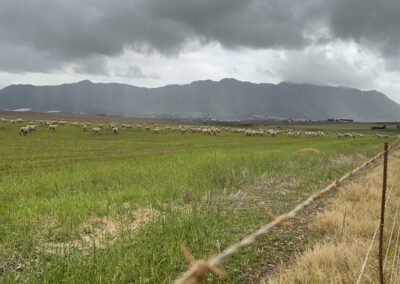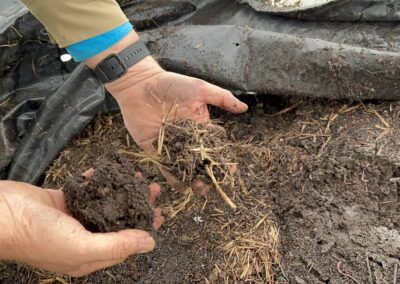02 February 2024
by Dr. Jacqueline Raw, Carbon Project Developer
World Wetlands Day is celebrated every year on the second of February to raise awareness about the importance of wetland conservation. The theme for 2024 is “Wetlands and Human Wellbeing”.
Human wellbeing is linked closely to nature, with recent research showing the positive effects of wetlands for physical, emotional, and mental health. Wetlands provide a myriad of “services” such as filtering freshwater, storm-surge protection, fish breeding grounds as well as tourism opportunities which contribute to our wellbeing and the wellbeing of the planet. For the planet, wetlands are considered to “punch above their weight” when it comes to their ability to contribute to mitigate the effects of climate change.
The importance of wetlands for climate mitigation was highlighted by Wetlands International at COP28 in their call to take action to protect and restore wetlands so that they can serve as “nature-based solutions” to climate change. But how can wetlands fulfil this role?
One way is through inclusion in Nationally Determined Contributions, as part of countries’ commitments to the Paris Agreement. WWF reported that there has been a significant increase in the inclusion of wetlands into NDCs, with a total of 51 countries claiming to include wetlands in either their mitigation or adaptation components in 2021.
Another way is through carbon credit projects developed for the voluntary carbon market. As wetlands can sequester and store large amounts of organic carbon, they present an opportunity for carbon project revenue to finance conservation work. While there are existing methodologies for these types of projects (such as Verra’s VM0033, there have been relatively few projects that have been registered to issue credits. While there has been increased interest for credits from these projects (particularly from coastal wetlands, so-called “blue carbon” projects), there are market-related challenges that limit implementation. These include the costs of verification and the need to develop at relatively large scales when the areas that can be included for carbon project activities are often fragmented and unevenly distributed – creating challenges for monitoring and management. Despite this, there are also some actionable recommendations, including improvements to benefit sharing arrangements, financial approaches and accounting tools.
It is clear that there is an urgent need (and desire) to include wetlands as a solution in combatting climate change. The complexity of climate change means that our solutions will also need to be complex and as such it becomes imperative to invest in nature take action that safeguards the future of ecosystems, including wetlands.



